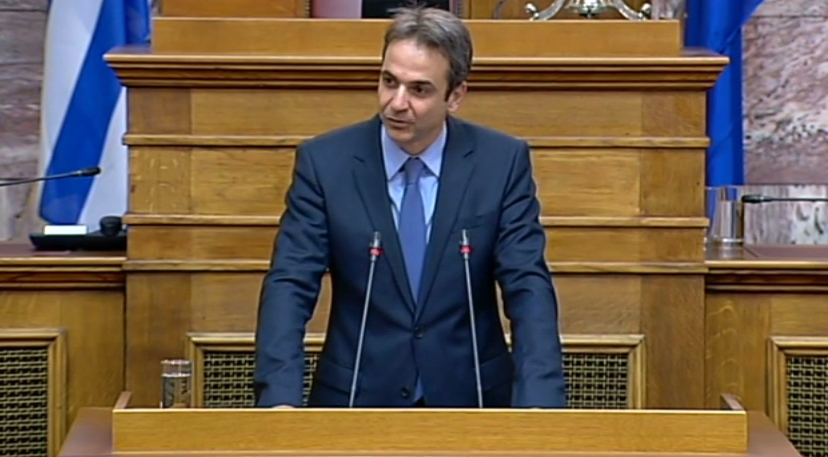“Unless the solution is addressed at a European level with the cooperation of Turkey then the situation is going to become unmanageable for my country,” he said. He warned: “We’ve reached a point where we cannot accept further numbers.”
“Greece needs not only more economic assistance but it needs its European partners to step up to the plate. This is a European problem, it cannot be solved by Greece alone. Frankly, all the commitments to relocate refugees out of Greece have come to nothing so unless the European countries show some real leadership we’re not going to find a sustainable solution.”
With the exception of German Chancellor Angela Merkel, who has stood by a migrant-friendly policy in Germany, Mitsotakis said there had been little leadership shown from Europe. He also looked closer to home, saying Greek Prime Minister Alexis Tsipras had “mishandled” the crisis from the beginning.
Loose ends and details
Mitsotakis’ comments follow an emergency EU summit earlier this week in which a plan was agreed that could see Turkey take back migrants arriving in Greece. In return, the EU would have to accept Syrian refugees directly from a Turkish refugee camp.
The idea of the proposal is to reduce the incentives for refugees and migrants to cross the Turkey/EU border or sea to enter the European bloc.
Thousands of migrants continue to arrive in Europe every week with the majority fleeing civil war in Syria, although many are coming from impoverished countries in Africa and other parts of the Middle East and are seen as economic migrants rather than asylum seekers.
While many are travelling by land via Turkey, thousands are arriving by sea (also travelling from Turkish shores), mainly in southern Europe.
Greece, a country already dealing with recession, the onerous terms of a third international bailout, spending cuts and having to make unpopular reforms is struggling with the amount of people arriving.The UN estimated that more than a million migrants arrived in Europe in 2015.
He said while it was clear that the EU needed to engage Turkey to find a “long-term, viable and sustainable solution as there is no permanent solution to the problem with Turkey” there were still a “lot of loose ends, a lot of details to be ironed out and there is still room for some active diplomacy between now and the next summit.”
Mitsotakis said he hoped the summit proposals would send a clear message that there was “no room” in Europe for economic migrants, and that the region could “barely cope with asylum seekers.”









